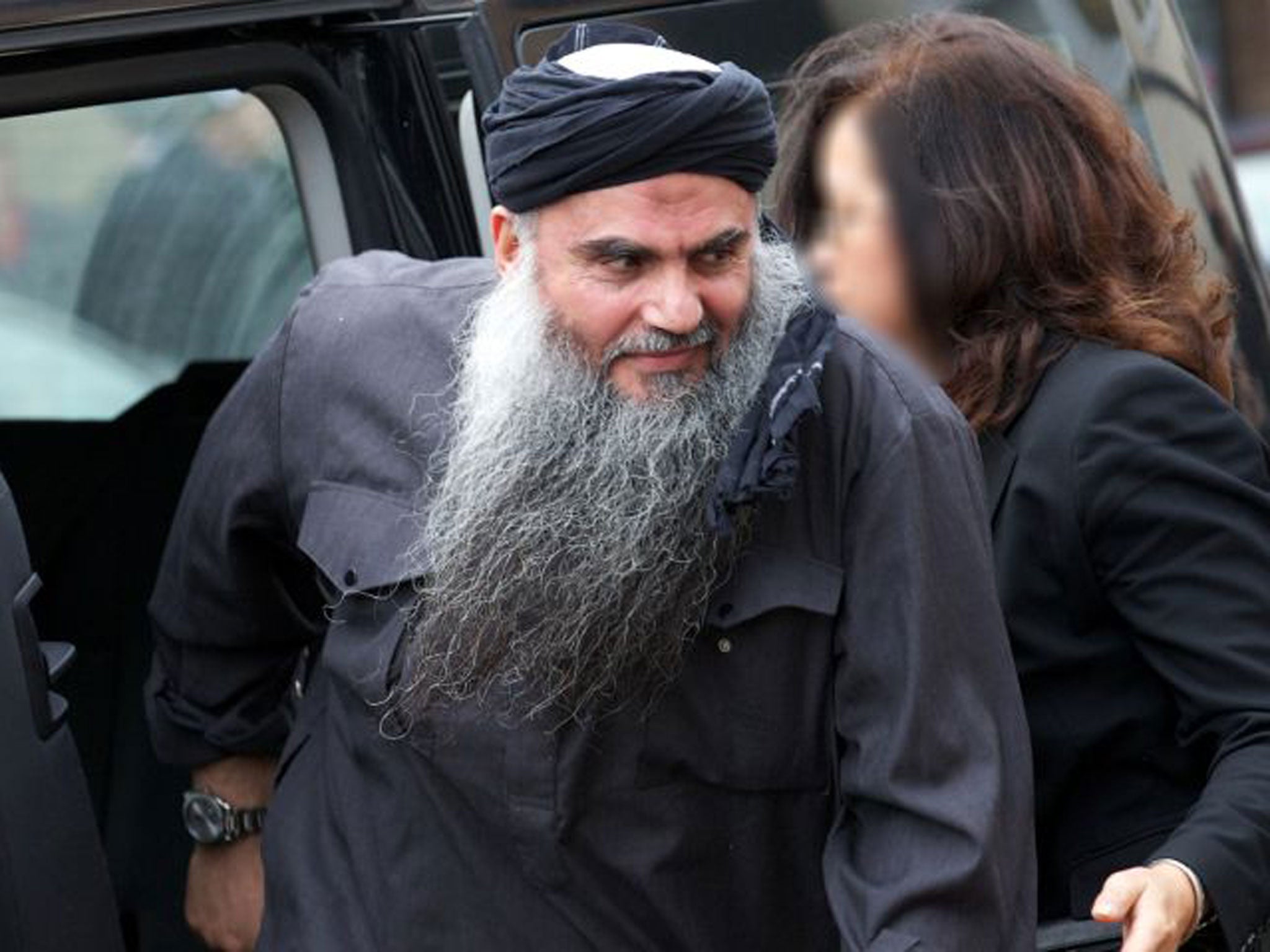Abu Qatada extradition latest: Radical cleric reveals he will return to Jordan voluntarily if its parliament guarantees anti-torture treaty

Abu Qatada will leave Britain voluntarily if a new law banning the use of torture evidence in Jordan is passed, his barrister revealed today.
Government attempts to rid the country of the 52-year-old radical cleric have been repeatedly thwarted by the courts with judges unhappy at assurances from Jordan that he will receive a fair trial. But last month Home Secretary Theresa May revealed that a treaty had been obtained with the Arab kingdom that would offer guarantees that torture evidence would not be used against him.
Today Prime Minister David Cameron was said by his spokesman to remain “absolutely determined to put Abu Qatada on a plane back to Jordan”.
At a hearing before the Special Immigration Appeals Commission (Siac), Edward Fitzgerald QC said: "There has been a development in the form of a treaty signed on 24 March.
"That treaty is clearly designed to meet the requirements laid down by Mr Justice Mitting as to evidence admissible at a retrial, if there is a retrial. If and when the Jordanian parliament ratifies the treaty, Mr Othman will voluntarily return to Jordan."
"There's never been a time in the last 12 years that Mr Othman and his family could safely return to Jordan,” Mr Fitzgerald said, adding: "For a long period of time, he has made it clear that he wishes to leave lawfully. He has made it known that he would be willing to discuss returning to Jordan providing conditions could be discussed."
The QC, who is expected to ask for bail at a hearing in 10 days’ time, said his desire to leave meant he would not abscond if released: "Why would he make himself lawless and subject to arrest when he has said that the right thing to do is to go back to Jordan once the assurances are given?"
Last year Home Secretary Theresa May told Parliament that she had received assurances from Jordan’s King Abdullah II that a constitutional change meant torture evidence would no longer be used and Qatada, who was convicted of terror charges in his absence in 1999, would receive a fair retrial. However, human rights’ groups in the country said that it would take three years for the constitutional amendments to come into force and while incidents of torture had lessened, they still continued with impunity.
Today Robin Tam QC, for the Home Secretary, told the tribunal that the new treaty would be laid before the Jordanian parliament in the next few weeks, while the UK side of the process should be completed by late June.
Mr Justice Irwin said the Home Secretary would need to provide evidence of when it became law: "Not merely when it has been ratified but when it's in force."
Keith Vaz MP, chair of the Home Affairs Select Committee, said: "I welcome Abu Qatada's commitment to voluntarily returning to Jordan if the treaty is ratified.
"The Home Secretary must get on a plane to Jordan and secure ratification immediately before Mr Qatada changes his mind. I have today written to the Prime Minister of Jordan to ask what the timetable is for ratification."
Qatada, whose bail conditions included a ban on using the internet or contacting certain people, is currently in Belmarsh having been re-arrested in two months ago.
Mr Justice Irwin told the tribunal that on 7 March the cleric's home was searched by police. A total of 17 mobile phones, three USB sticks, one SD card, five digital media devices and 55 recordable CDs or DVDs were found, the judge said.
Timeline
September 1993 The Jordanian claims asylum when he arrives in Britain on a forged passport.
April 1999 Convicted in Jordan, in his absence, on terror charges, and sentenced to life imprisonment.
February 2001 Arrested over plot to bomb Strasbourg Christmas market.
December 2001 Goes on the run but is arrested 10 months later.
April 2008 The Court of Appeal rules that deporting Abu Qatada would breach his human rights.
April 2012 He is arrested as the Government prepares to deport him.
November 2012 Wins his Special Immigration Appeals Commission appeal. Theresa May brands the decision “unsatisfactory”.
December 2012 Ms May wins permission to appeal against the decision.
March 2013 The Home Secretary’s appeal is denied.
April 2013 The Government announces it will appeal directly to the Supreme Court.
May 2013 Abu Qatada’s lawyer says his client would voluntarily return to Jordan if it ratifies a treaty guaranteeing a fair trial.
Join our commenting forum
Join thought-provoking conversations, follow other Independent readers and see their replies
Comments